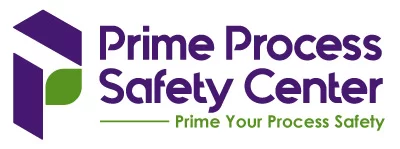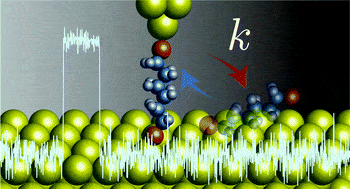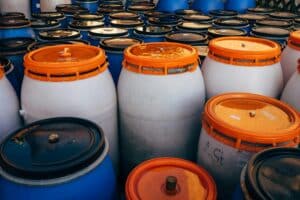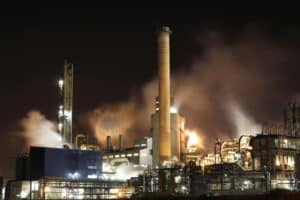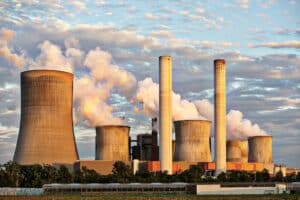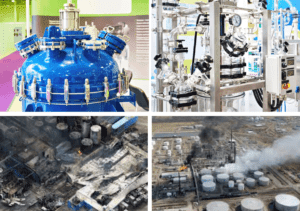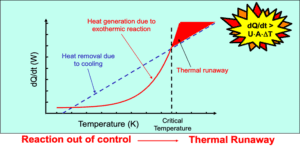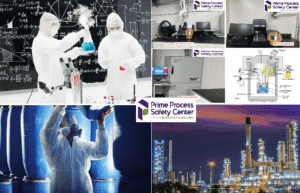We also offer
Chemical Kinetics Evaluation
Process safety is an essential aspect of industrial operations, especially in industries that handle hazardous chemicals. Understanding the behavior of chemical reactions is vital for assessing potential hazards, evaluating the impact of process conditions, and implementing effective safety measures. Chemical kinetics evaluation offers valuable insights by studying the rate, mechanisms, and consequences of chemical reactions.
Understanding Chemical Kinetics Evaluation
Chemical kinetics is the branch of chemistry that studies the speed at which chemical reactions occur and the factors influencing their rates.
It involves analyzing the reaction pathways, reaction intermediates, rate constants, and influencing parameters such as temperature, pressure, concentration, and the presence of catalysts. By evaluating these variables, chemical kinetics evaluation provides a deeper understanding of reaction mechanisms and the associated safety hazards.
Application of Chemical Kinetics in Process Safety
Hazard Identification
Through chemical kinetics evaluation, potential hazards can be identified during the design and operation of industrial processes. This allows organizations to anticipate and understand the consequences of reactions, such as heat generation, pressure buildup, or the release of toxic byproducts. By identifying these hazards, appropriate safety measures can be implemented to prevent accidents, minimize risks, and protect personnel, equipment, and the environment.
Safety System Design
Chemical kinetics plays a vital role in designing effective safety systems. By understanding the kinetics of specific reactions, organizations can ensure that safety systems such as emergency venting systems, pressure relief devices, or explosion suppression systems are appropriately designed and deployed. Chemical kinetics data aids in determining the required capacity, response time (process safety time, i.e., PST), and effectiveness of such safety systems, thereby optimizing their performance during potential emergencies.
Reaction Optimization
Chemical kinetics evaluation helps achieve optimal process efficiency without compromising safety. By studying the kinetics of reactions, organizations can identify operating conditions that provide the desired conversion rates while minimizing the risk of undesired side reactions or unstable process conditions. This allows for the development of safer and more efficient reaction pathways, promoting process reliability and productivity.
Compatibility and Reaction Risk Assessment
Chemical kinetics evaluation assists in assessing the compatibility of different chemicals and their potential reaction risks. By predicting reaction rates, pathways, and energetics, organizations can identify incompatible chemical combinations that may lead to hazardous reactions, such as explosions, fires, or toxic gas generation. Understanding reaction kinetics supports decision-making related to storage, transportation, and handling of chemicals to minimize risks and prevent accidents.
Process Modeling and Simulation
Chemical kinetics data is essential for accurately modeling and simulating industrial processes. By integrating kinetics into process simulation software, organizations can predict and analyze the behavior of chemical reactions. This enables virtual testing of process conditions, performance optimization, and the identification of potential safety concerns, ultimately enhancing process safety before implementation.
Why Perform Chemical Kinetics Evaluation?
Incorporating chemical kinetics evaluation in process safety practices serves as a valuable tool for understanding the behavior and potential hazards associated with chemical reactions. By identifying hazards, designing effective safety systems, optimizing reactions, mitigating risks, and supporting process simulation, chemical kinetics contributes to enhancing the safety and efficiency of industrial processes.
Embracing this knowledge allows organizations to proactively manage their chemical processes, safeguard their personnel and assets, and adhere to regulatory requirements. Overall, the application of chemical kinetics evaluation is a key enabler for achieving optimal process safety in various industries.
Why Choose Prime Process Safety Center
Commence a transformative journey in your research, material development, or production optimization with Prime Process Safety Center’s Chemical Kinetics Evaluation services.
Our adept team utilizes cutting-edge techniques and ISO/IEC 17025:2017 accredited laboratory instrumentation to:
-
Thoroughly investigate reaction rates
-
Identify crucial intermediates
-
Evaluate comprehensive reaction pathways
This in-depth analysis is pivotal for:
-
Optimizing reaction conditions
-
Enhancing yields
-
Ensuring the highest product quality standards
Incorporate Prime Process Safety Center as your strategic partner to gain profound insights into the dynamic nature of chemical reactions. Our Chemical Kinetics Evaluation services empower you to:
-
Make informed decisions
-
Foster increased efficiency
-
Achieve cost reduction
-
Attain operational excellence tailored to your industry’s needs
Embark on this collaborative journey with Prime Process Safety Center and unlock the potential for innovation, precision, and success in your chemical endeavors.
FAQ
1. What is chemical kinetics evaluation in process safety?
Chemical kinetics evaluation in process safety involves studying the rates and mechanisms of chemical reactions in industrial processes to assess potential hazards and ensure safe operation.
2. Why is chemical kinetics evaluation important?
Chemical kinetics evaluation helps identify and understand the potential for uncontrolled reactions, explosions, and accidents in industrial processes. It provides valuable insights for designing and implementing safety measures.
3. How is chemical kinetics evaluated in process safety studies?
Chemical kinetics evaluation typically involves laboratory calorimetric tests or computer modeling to determine reaction rates, reaction pathways, and potential hazards. It helps quantify the risks associated with specific chemical reactions in a given process.
4. What parameters are considered in chemical kinetics evaluation?
Parameters such as reaction rate constants, activation energies, reaction orders, reaction enthalpy, temperature, pressure, and concentrations of reactants and products are considered in chemical kinetics evaluation.
5. What are the potential hazards that chemical kinetics evaluation can help identify?
Chemical kinetics evaluation can help identify hazards such as thermal runaway reactions, explosive reactions, release of toxic gases, and potential for runaway reactions leading to equipment failure.
6. How can chemical kinetics evaluation improve process safety?
By understanding the kinetics of chemical reactions, industry professionals can optimize process conditions, select appropriate materials, and design effective control strategies to minimize the risks associated with chemical reactions.
7. Can computer modeling be used for chemical kinetics evaluation?
Yes, computer modeling is widely used for chemical kinetics evaluation. It allows for simulating and predicting reaction rates, thermal effects, and hazardous conditions under different process scenarios.
8. How often should chemical kinetics evaluation be conducted for process safety?
Chemical kinetics evaluation should be conducted during the optimization and design phase of a process and periodically during its operation to ensure ongoing process safety. The frequency of evaluation depends on the complexity and nature of the process.
9. Are there any regulations or guidelines related to chemical kinetics evaluation in process safety?
Several regulations and guidelines, such as OSHA's Process Safety Management standard and API's Recommended Practice 520, CCPS DIERS book provide guidance on the assessment and management of chemical reactions and kinetics in the context of process safety.
10. Can outsourcing chemical kinetics evaluation help industries in terms of process safety?
Yes, outsourcing chemical kinetics evaluation to specialized consultants or experts can bring in-depth knowledge, experience, and advanced tools to ensure thorough and accurate evaluation, giving industries confidence in their process safety measures.

